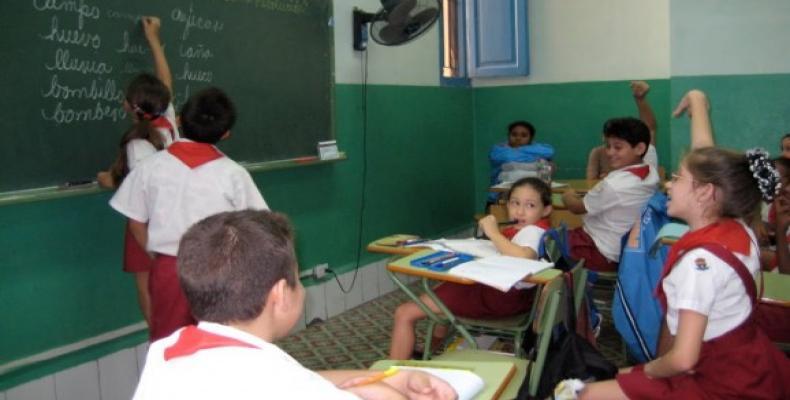The current situation of and perspectives on education in Cuba have been the subject of lengthy and profound examination by the National Assembly’s ten working commissions as a prelude to the inauguration of the third period of sessions of the eighth legislature this coming Saturday.
Reflection on this most sensitive of matters, education, has been extensive. The Assembly members have heard directly from students, teachers, school officials, and not the least, fathers and mothers from all Cuban provinces.
The legislators heard concerns voiced by students: these included the cancelling of classes in English Language and Physical Education due to a shortage of teachers. Then they heard about what the students felt was the unattractive nature of some new Civic Education courses, despite their obvious importance in the formation of civic values.
Students, Parents and Teachers alike complained about material difficulties, especially in schools, many of which are still crying out for immediate repairs.
It must be said that a lot of important material needs for successful classes have already been met and the Cuban Ministry of Education has made purchases valued at millions of dollars in this respect.
The National Assembly Commissions have contributed their studies on the educational process. These include a study conducted by the Commission for attention to childhood and youth, another presented by the Commission on the Equality of Women, and finally one dealing with the strengths and weaknesses of current school programmes in Middle Education. The commissions made several field trips to gather information for their reports and they visited scores of secondary schools in eleven of the nation`s provinces.
The report lists problems directly linked to heart of the educational process and difficulties especially in the application of vocational training.
Without any doubt the educational system in Cuba has major challenges ahead. It most awaken the motivation and greater participation of teachers, students and families in a concerted action leading to the formation of revolutionary citizens, patriotic, humanistic, disciplined, decent, active, and above all those who will develop strong feelings of sympathy with those who need help.
As the first Vicepresident of Cuba, Miguel Diaz Canel has said, the historic development of Cuban education stands to be rescued and its high social, moral, and patriotic values must be brought to bear on current needs.
The open debates on this all important subject, enriched by the opinions of the Cuban population at large, are fundamental to the success of the new school year, already less than 2 months away!.


